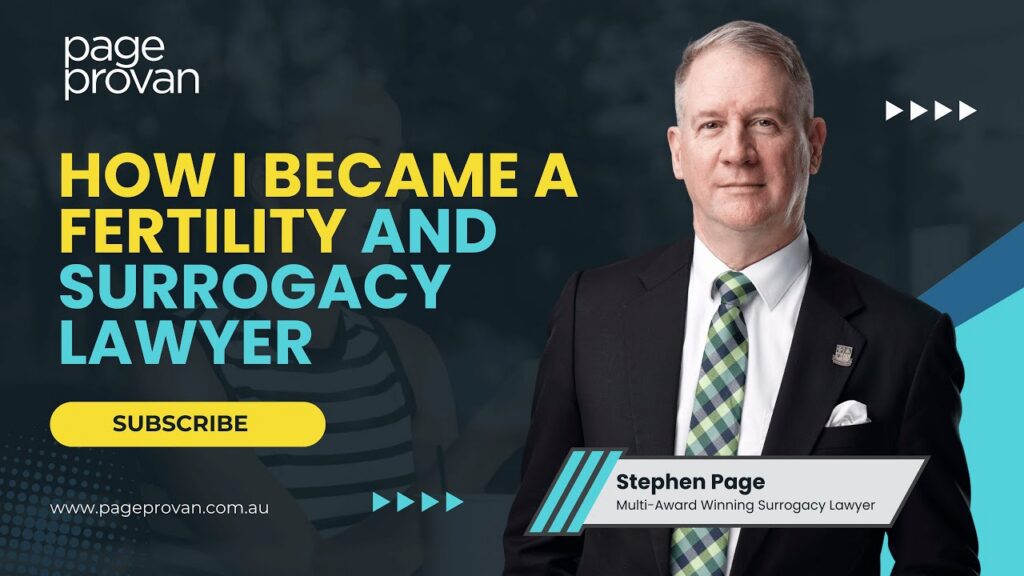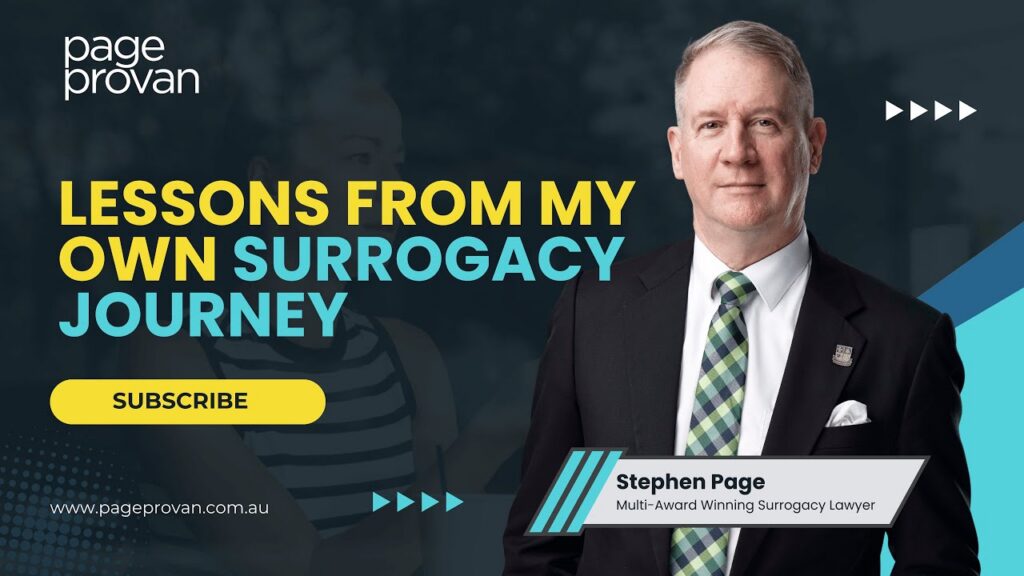What You Must Know About the Assisted Reproductive Technology Act (ACT)
In this video, Multi-Award Winning Surrogacy Lawyer, Stephen Page discusses the Assisted Reproductive Technology Act in the ACT.
Transcript
G’day, Stephen Page from Page Provan Family & Fertility Lawyers. And I’m talking to you today about the Assisted Reproductive Technology Act in the ACT. And I’ve covered similar videos, and they are the ability of parents to know their donours. And so there’s been a change in the ACT about that, or about to be. And another video about eight systems of IVF regulation in Australia. I started the video by saying seven, then I realised, Whoops, I got the maths wrong. It was actually eight. And postumous reproduction changes, and another one about if the cap fits, and finally, about the ICT Surrogacy Bill. But this one is not about any of those. It’s about the ACT, Assistered Reproductive Technology Act. This act was enacted by the ACT Parliament in March, and some parts of this Act are in place. Other parts of this act, particularly part five, which concerns donation, commence sometime between now and March, in 2025. I just want to focus on three aspects of this Act which are significant. The first is that the ACT has brought in a requirement for ACT IVF Clinics to be registered. So currently, there are three IVF Clinics in the ACT.
There’s one run by IVF Australia or Vertus Health. There’s one run by Genea Fertility, and then there’s another one, which is independent, Compass Fertility. So there’s only three clinics currently in the ACT, because the ACT has got 400,000 people. But they will need to get registration from ACT authorities, as well as have a licence from the Fertility Society of Australia & New Zealand. So every IVF clinic in Australia must have a licence from the Fertility Society of Australia & New Zealand, and this will be an added component. The ACT in doing this is copying what New South Wales, Victoria, South Australia, and Western Australia have already done, and Queensland is about to do. And the other change that I think is significant is that there will be an ACT donor registry. And this is a welcome change in that if you’re a donor-conceived adult, you know that you can find out your records if you’ve been born after 2004 by going to your local IVF clinic. The problem about that is you may not know which IVF clinic you’ve gone to. And the ACT is pretty low risk in that there are only three clinics. But you can see that if you go to a state that has a larger number of clinics, for example, Victoria, New South Wales, or Queensland, you could keep looking and looking.
And if your parents happen to move around, then that’s also a problem. But at least there will be one donor registry in the ACT covering all births in the ACT or all treatment that’s resulted in births through IVF clinics in the ACT. So that’s definitely a step forward. What hasn’t happened yet is we don’t have a National Donor Registry. It’s something that I’m very passionate about making sure there is a National or at least a nationally-linked donor registry. I’ve been on the record about that for a couple of years. I’m glad that the Fertility Society of Australia & New Zealand, which I’m a Director, has called for a National Registry, but we’re not there yet. With the start of this registry, there will be a donor registry in New South Wales, another in Victoria, ACT, South Australia, West Australia, and soon there will be one also in Queensland. The other big change in the ACT is that there will be retrospective transparency on donations back to the beginning of time. Now, way back when, there may not have been good records, and certainly we’ve seen that discussed in Queensland. But Victoria was the first to do this.
South Australia said at first, no, we’re not going to copy that. And setting up their donor registry, they changed their mind earlier this year, and now said they’re doing it. The ACT will be the third to do so, and Queensland will be the fourth. Although that must be said, the South Australian Law hasn’t started yet, the ACT law hasn’t started yet, and I’m not sure when the Queensland Law will start, but they’ll all start about the same time. And each of those will mean that if your donor conceived through an IVF clinic or an IVF doctor or artificial insemination, since it really got underway, at least in terms of pregnancies, and since the ’70s, you’ll be able to find out or at least have a good shot at trying to find out where you’ve come from. So I think these are big steps forward and very positive. Thank you, Stephen Page, Page Provan Family Infantility Lawyers.












